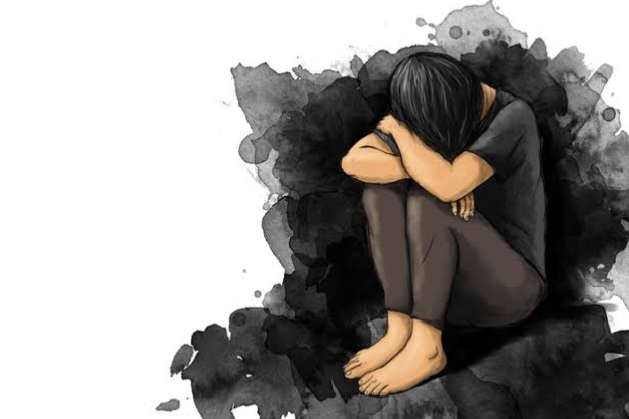What if the person whose songs have helped millions cope with their struggles was quietly battling the same invisible battle? Depression is not a weakness, nor is it exclusive to a particular group of people. It affects millions globally, regardless of success, wealth, or social standing. Many people, even those in the public eye, struggle with this condition daily. But depression is usually concealed, a quiet battle that is not always visible to others.
Many experience depression in the form of a constant state of sadness or hopelessness that colors everything else in life. This burden is usually so overwhelming that it can affect a person’s ability to cope or find joy in once pleasurable activities. But the good news is that depression is manageable, and there are proven strategies for dealing with it.
Iwill examine what depression is, its symptoms and causes, and most importantly, practical methods of coping with it. By learning about depression, implementing coping skills, and seeking the proper assistance, we can all start the process of healing. Whether you or someone you know is struggling, it’s important to remember that you are not alone, and there are practical steps you can take to regain control.
Understanding Depression: What It Is and Its Impact
Depression, also called major depressive disorder (MDD), is more than the usual sadness. Depression is a psychiatric disorder that influences a person’s way of feeling, thinking, and behaving. Whereas sadness is a natural part of life, depression is ongoing and disrupts everyday life to the extent that individuals cannot muster motivation, feel happy, or be productive.
Symptoms of Depression
Depression manifests itself through emotional, cognitive, and physical symptoms. These can include:
Emotional Symptoms: Persistent sadness, hopelessness, irritability, and feelings of worthlessness or guilt.
Cognitive Symptoms: Difficulty concentrating, making decisions, or remembering things.
Physical symptoms include fatigue, changes in appetite (either overeating or undereating), sleep disturbances (insomnia or excessive sleeping), and unexplained aches and pains.
At times, depression can cause individuals to contemplate suicide or hurt themselves. Should you or the person you know be having thoughts in this direction, you must get help from a mental health professional right away.
Causes of Depression
Depression has multiple causes that differ from person to person. While it is difficult to pinpoint a single cause, depression frequently develops from a mix of factors:
Biological Factors: An imbalance of neurotransmitters (brain chemicals) such as serotonin and dopamine, which serve to control mood.
Genetic Factors: A family history of depression raises the probability of developing the illness.
Psychological Factors: Past trauma, abuse, or a history of anxiety can contribute to depression.
Environmental Factors: Stressful life situations, such as the death of a loved one, financial difficulties, or marital problems, can cause or worsen depression.
Understanding the causes of depression can help reduce feelings of guilt and self-blame. It is essential to recognize that depression is a medical condition, not a personal failing.
Effective Strategies for Managing Depression
While depression can feel overwhelming, it is possible to manage and reduce its impact. The following strategies have been proven to help individuals cope with depression and improve their mental well-being.
Cognitive Behavioral Therapy (CBT)
CBT is one of the most effective and widely used therapeutic approaches for treating depression. It focuses on detecting and replacing harmful thought habits with healthier, more realistic thoughts. CBT also helps individuals develop practical skills for coping with difficult situations and emotional triggers.
CBT teaches patients to detect and question distorted beliefs (such as “I am worthless”) and replace them with positive affirmations (such as “I am deserving of love and respect”). Over time, this shift in thinking helps reduce feelings of helplessness and hopelessness, which are central to depression.
Medication
In some cases, antidepressant medications can help manage the symptoms of depression. These medications work by adjusting the chemical imbalances in the brain, specifically those related to the neurotransmitters that regulate mood. Common types of antidepressants include:
Selective Serotonin Reuptake Inhibitors (SSRIs)
Serotonin-Norepinephrine Reuptake Inhibitors (SNRIs)
Tricyclic Antidepressants (TCAs)
While medications can be effective, they should always be prescribed by a healthcare professional. It may take time to find the right drug and dosage for each individual.
Physical Activity
Exercise is one of the most potent natural strategies to treat depression. When you exercise, your body produces endorphins, hormones that boost your mood and reduce feelings of tension and worry. Walking, yoga, or even dancing are examples of regular physical activity that can have a significant impact on one’s physical and emotional well-being.
Even small amounts of exercise can help increase vitality, improve sleep quality, and give a sense of achievement. Including exercise in everyday activities can be a powerful strategy for depressed individuals to regain control.
Mindfulness and Meditation
Mindfulness and meditation practices focus on staying present in the moment and letting go of negative thoughts. Deep breathing exercises, progressive muscle relaxation, and other methods can help reduce stress and improve mental clarity. Mindfulness meditation, which encourages people to focus on their breath or a specific mantra, can also help calm the mind and reduce anxiety.
People who regularly practice mindfulness can become more emotionally resilient and improve their ability to control their thoughts and emotions. It has been demonstrated that meditation, in particular, raises serotonin levels, which can elevate mood and lessen depressive symptoms.
Building a Support Network
Having a support system is essential when coping with depression. Isolation can worsen depression, so it’s crucial to surround yourself with people who understand and support you. This could include friends, family members, support groups, or a therapist.
Talking about your feelings and challenges can help you feel less alone and provide you with new perspectives on your situation. Support groups, in particular, offer a safe space where people who are experiencing similar struggles can share their experiences and coping strategies.
Self-Care and Healthy Lifestyle Choices
Taking care of your physical health can have a significant impact on your mental well-being. Establishing a routine that includes proper nutrition, adequate sleep, and relaxation is vital for managing depression.
Nutrition: Eating a balanced diet rich in fruits, vegetables, lean proteins, and whole grains can help regulate mood and energy levels.
Sleep: Maintaining a consistent sleep schedule and getting enough restful sleep can help reduce irritability and increase emotional stability.
Relaxation: Taking time for self-care activities, such as reading, taking a bath, or spending time outdoors, can help reduce stress and improve your mood.
Professional Help
Sometimes a mental health professional’s help is necessary to manage depression. People can work through their ideas and feelings in a safe, controlled setting and build coping mechanisms with the use of therapy, such as cognitive behavioral therapy. To achieve the best results, treatment and medication may be combined occasionally.
Seeking professional assistance is a crucial step in the healing process if you or someone you love is suffering from depression. In the process of healing, therapy can be a life-changing instrument that provides understanding, encouragement, and direction.
The Role of Music and Art in Depression Recovery
Music, art, and other forms of creative expression can be incredibly therapeutic for people struggling with depression. Engaging in creative activities helps individuals process their emotions and express themselves in ways that words sometimes cannot.
Music, in particular, has a unique ability to evoke emotions and provide comfort. Many people find solace in listening to music that resonates with their struggles. Artists often channel their own experiences of pain and sadness into their music, creating a powerful bond between the artist and the listener.
For those who are artistically inclined, creating music, art, or writing can also be an effective way to manage feelings of depression. Creative expression allows individuals to externalize their internal emotions, giving them a sense of control over their feelings.
Conclusion: Taking Control of Your Mental Health
Millions of individuals around the world suffer from depression, a complicated and frequently incapacitating illness. However, symptoms can be controlled and mental health can be improved with the right techniques and support.
You can take control of your mental health in several ways, such as through therapy, medication, physical activity, and creative expression. Remember that getting treatment is a sign of strength and that you are not alone if you or someone you love is experiencing depression.
It is possible to overcome the effects of depression and move toward a more promising, well-rounded future with the correct instruments, resources, and assistance. Seek advice from a mental health professional if you’re feeling overwhelmed or don’t know where to begin. Starting the healing process can change your life.


